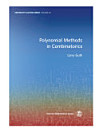Lectures on the Riemann Zeta Function
H. Iwaniec
ਅਕਤੂ 2014 · University Lecture Series ਕਿਤਾਬ 62 · American Mathematical Society
ਈ-ਕਿਤਾਬ
119
ਪੰਨੇ
reportਰੇਟਿੰਗਾਂ ਅਤੇ ਸਮੀਖਿਆਵਾਂ ਦੀ ਪੁਸ਼ਟੀ ਨਹੀਂ ਕੀਤੀ ਗਈ ਹੈ ਹੋਰ ਜਾਣੋ
ਇਸ ਈ-ਕਿਤਾਬ ਬਾਰੇ
The Riemann zeta function was introduced by L. Euler (1737) in connection with questions about the distribution of prime numbers. Later, B. Riemann (1859) derived deeper results about the prime numbers by considering the zeta function in the complex variable. The famous Riemann Hypothesis, asserting that all of the non-trivial zeros of zeta are on a critical line in the complex plane, is one of the most important unsolved problems in modern mathematics.
The present book consists of two parts. The first part covers classical material about the zeros of the Riemann zeta function with applications to the distribution of prime numbers, including those made by Riemann himself, F. Carlson, and Hardy-Littlewood. The second part gives a complete presentation of Levinson's method for zeros on the critical line, which allows one to prove, in particular, that more than one-third of non-trivial zeros of zeta are on the critical line. This approach and some results concerning integrals of Dirichlet polynomials are new. There are also technical lemmas which can be useful in a broader context.
ਲੇਖਕ ਬਾਰੇ
H. Iwaniec, Rutgers University, Piscataway, NJ, USA.
ਇਸ ਈ-ਕਿਤਾਬ ਨੂੰ ਰੇਟ ਕਰੋ
ਆਪਣੇ ਵਿਚਾਰ ਦੱਸੋ
ਪੜ੍ਹਨ ਸੰਬੰਧੀ ਜਾਣਕਾਰੀ
ਸਮਾਰਟਫ਼ੋਨ ਅਤੇ ਟੈਬਲੈੱਟ
Google Play Books ਐਪ ਨੂੰ Android ਅਤੇ iPad/iPhone ਲਈ ਸਥਾਪਤ ਕਰੋ। ਇਹ ਤੁਹਾਡੇ ਖਾਤੇ ਨਾਲ ਸਵੈਚਲਿਤ ਤੌਰ 'ਤੇ ਸਿੰਕ ਕਰਦੀ ਹੈ ਅਤੇ ਤੁਹਾਨੂੰ ਕਿਤੋਂ ਵੀ ਆਨਲਾਈਨ ਜਾਂ ਆਫ਼ਲਾਈਨ ਪੜ੍ਹਨ ਦਿੰਦੀ ਹੈ।
ਲੈਪਟਾਪ ਅਤੇ ਕੰਪਿਊਟਰ
ਤੁਸੀਂ ਆਪਣੇ ਕੰਪਿਊਟਰ ਦਾ ਵੈੱਬ ਬ੍ਰਾਊਜ਼ਰ ਵਰਤਦੇ ਹੋਏ Google Play 'ਤੇ ਖਰੀਦੀਆਂ ਗਈਆਂ ਆਡੀਓ-ਕਿਤਾਬਾਂ ਸੁਣ ਸਕਦੇ ਹੋ।
eReaders ਅਤੇ ਹੋਰ ਡੀਵਾਈਸਾਂ
e-ink ਡੀਵਾਈਸਾਂ 'ਤੇ ਪੜ੍ਹਨ ਲਈ ਜਿਵੇਂ Kobo eReaders, ਤੁਹਾਨੂੰ ਫ਼ਾਈਲ ਡਾਊਨਲੋਡ ਕਰਨ ਅਤੇ ਇਸਨੂੰ ਆਪਣੇ ਡੀਵਾਈਸ 'ਤੇ ਟ੍ਰਾਂਸਫਰ ਕਰਨ ਦੀ ਲੋੜ ਹੋਵੇਗੀ। ਸਮਰਥਿਤ eReaders 'ਤੇ ਫ਼ਾਈਲਾਂ ਟ੍ਰਾਂਸਫਰ ਕਰਨ ਲਈ ਵੇਰਵੇ ਸਹਿਤ ਮਦਦ ਕੇਂਦਰ ਹਿਦਾਇਤਾਂ ਦੀ ਪਾਲਣਾ ਕਰੋ।







